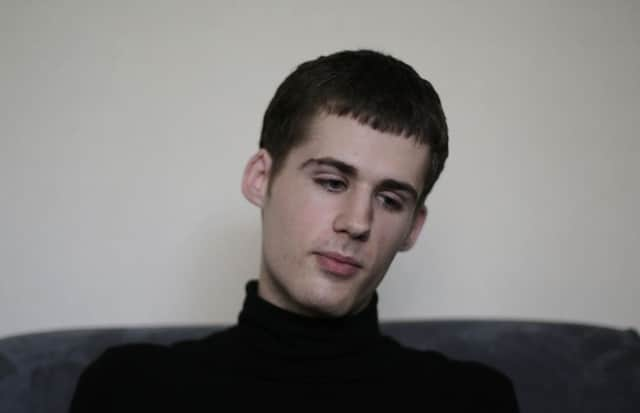Get me out North Korea jail, pleads American


Along with two other Americans detained in the North, the young defendant says he has one hope – that a senior US statesman will come and get him out.
Matthew Miller, who has been in custody since April, faces a punishment that could range from forgiveness and deportation to a lengthy sentence in prison with hard labour.
Advertisement
Hide AdAdvertisement
Hide AdThe 24-year-old said he wrote a letter to US president Barack Obama more than a month ago but had not received a reply. He said “I do not want to go to prison.”
A trial is also expected soon for Jeffrey Fowle, who entered North Korea as a tourist but was arrested in May for leaving a Bible at a provincial club. The third man is Korean-American missionary Kenneth Bae, who is serving a 15-year sentence for alleged “hostile acts”.
The US has repeatedly offered to send Robert King, its envoy for North Korean human rights issues, to Pyongyang to seek the freedom of the detainees, but without success. High-level visits were the norm for securing the release of detainees in the past. Former president Bill Clinton went to North Korea in 2009 to free two jailed journalists, while Jimmy Carter made the trip in 2010 to secure the release of Aijalon Gomes, who had been sentenced to eight years of hard labour for illegally crossing into the country to do missionary work.
In 2011, the US envoy for North Korean human rights successfully intervened in the case of Korean-American businessman Eddie Yong Su Jun.
Finding a suitable middleman is no easy task, with the Obama administration immersed in bigger global crises and doggedly pursuing a policy of “strategic patience” with North Korea, which means not getting drawn into engagements that might be seen as bowing to pressure from Pyongyang.
Scott Snyder, director of the programme on US-Korea policy at the Washington-based Council on Foreign Relations think tank said: “North Korea’s strategy may have worked in the past, but its brinkmanship with the American hostages is occurring against the backdrop of so many other crises that North Korea cannot use this issue to elevate itself as Washington’s primary concern.”
He said Washington would find it hard to accept if the North linked the release of the Americans to the broader negotiations about its nuclear weapons programme.
Having a senior US statesman take detainees home has been used by the North to enhance the prestige of its leadership, but Mr Snyder said: “It causes headaches for sitting administrations, who do not want to risk losing control of the policy by having outsiders to their administration step into the picture.
Advertisement
Hide AdAdvertisement
Hide Ad“Under these circumstances, a high-level official visit is unlikely because it would entail excessive political risks. The best option would be for a senior former official with close ties to the Obama administration, but not a former president, to be accepted by both sides for this limited ‘rescue mission’.”
North Korea has not officially demanded a senior representative visit to release the Americans, but it has made no secret of its growing frustration with the US president’s cold-shoulder treatment.
“It is ridiculous for the Obama administration to continue pinning hope on the bankrupt strategic patience policy,” the state-run Korean Central News Agency said in an editorial last month.
In the meantime, the three Americans say they are running out of hope. Mr Miller said he had been in touch with his family in Bakersfield, California, by phone and had been allowed to meet the Swedish ambassador, who handles US consular affairs in Pyongyang because the Americans have no embassy there.